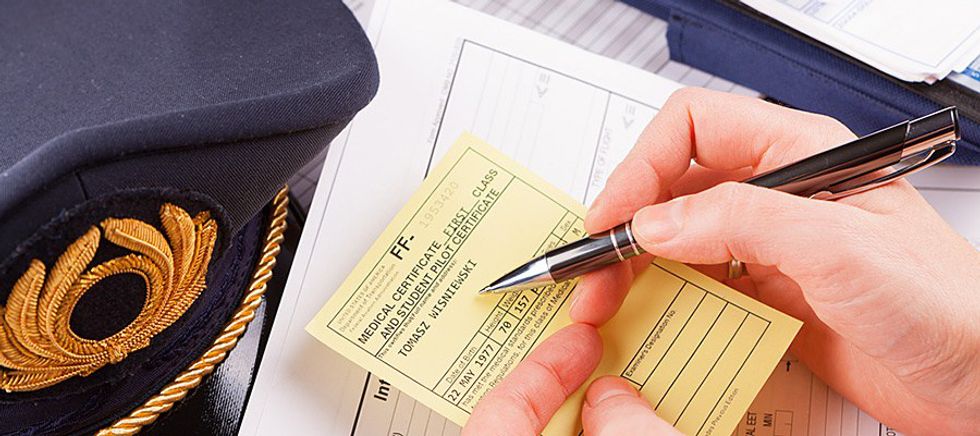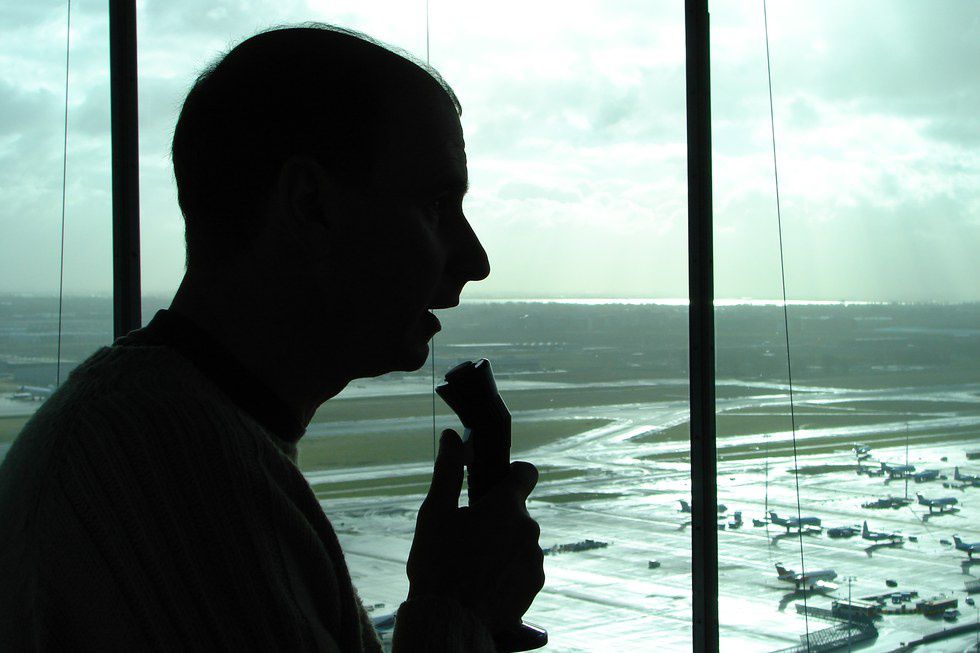If you have read my first article, The Struggles Of Being A Pilot Are Worth It, then you may have noticed that I referred to a document that all of us pilots know of, the FAR/AIM. Well, now we are going to dive into that a bit more and research what happens if you break any of these regulations.
There is no doubt that none of us have ever read up on the whole FAR/AIM, but we learn more about it as we venture through our flight training and receive additional skills. Though, if we do not become somewhat familiar with the phrasing of the government and their expectations for us as pilots, that is when the issues arise. The FAR itself contains several different “parts” in which you may have to comply with depending on your flight operations and breaking any section of these “parts” can be detrimental.
Breaking Weather Minimums
Yes, we as pilots can’t fly through clouds whenever we please, except when we are Instrument Rated. If you are a Private Pilot and do not have an instrument rating, you are not eligible to fly in certain conditions based on your airspace. Pilots on a VFR flight plan exert their power to test their limits and fly through a cloud layer to get on top of the clouds, this can be extra detrimental because as a VFR pilot, you are responsible for “seeing and avoiding” all other traffic, whether IFR (in Visual conditions) or VFR. Well, what happens when you fly into that cloud layer? You can’t SEE!
Inadequate Fuel Minimums
Believe it or not, whether you are flying IFR or VFR, this regulation is in the top 5 most broken. At some point in your flying career, you are guaranteed to look down at your fuel gauge and realize you may not have as much fuel as you thought. How many times have you landed with a 30-minute reserve during the day and a 45-minute reserve during the night? These reserves may seem silly, but what if somehow a plane at your destination airport landed with a malfunction and, uh oh, the runway is temporarily closed? Hopefully, you are lucky enough to have another airport not too far away. A good tip would be to set your own personal fuel minimums and create a point where you may want to stop along your route and refuel.
Am I Medically Qualified To Fly?
No one wants a sick pilot or one that may encounter an issue en-route because they did not perform a check on how they were feeling, or maybe they were running a bit late to call in sick. This can be extremely dangerous for a pilot who is flying alone, especially when carrying passengers. The day-to-day decision regarding our fitness to fly remains with the individual pilot.
A good way to combat this is to perform a checklist on how you are feeling and whether you should make a go/no-go decision. I personally use the IMSAFE checklist each time I have a flight scheduled, in fact, I use it right before I walk out the door each day. The “I” stands for illness, in other words, do I have any illnesses that may impair my ability to safely use the flight controls? Is it diagnosed? The “M” stands for medication. What medications am I currently taking, and what medications am I allowed to take before flying? The “S” stands for stress, so what in my life is stressing me to the point that I can’t stop thinking about it (this is a big one for college students).
The “A” stands for alcohol; how much have I consumed and how long has it been since I last had a drink? What is my blood alcohol content? The “F” stands for fatigue; how much have I been sleeping the past few days? When was my last full rest? Am I tired? The “E” can either stand for “eating” or “emotion,” but it is most commonly associated with eating since emotion fits in with stress.
Expired Medical
As a pilot, your certificate does not expire. It can be revoked, but it cannot expire. Though, the only way that your certificate is valid is by having a current medical, which is issued by an AME, or Aviation Medical Examiner. When you go see an AME, they usually perform more tests than a regular doctor would, and you can either receive a first, second, or third class medical. The class of medical restricts you on what pilot operations you may perform. Generally, Airline Transport Pilots are required to have a first class medical and those either have to be reissued every 12 calendar months or 6 calendar months depending on your age. Second class medicals are for the commercial pilots, and third class is the minimum needed for a student, private, or recreational pilot. In other words, since your medical certificate is a required document to fly, make sure it is current for your operations.
Airspace Violations
This may be the second most common broken regulation. Through my experiences flying, I have been surprised by the number of radio transmissions I have heard from an approach controller or tower controller to another aircraft with the dreaded phrase, “Advise when you are ready to copy this phone number.” Usually, when you hear that, it’s a bad thing. Sometimes, though, the air traffic controllers will request that a pilot call the number to serve as a witness on behalf of someone else or to report a safety violation. These numbers are given out mostly to aircraft that have penetrated an airspace they were not cleared into. As the pilot in command of your aircraft, you are the only one responsible for maintaining clearance of controlled airspace, and the blame cannot be put on an air traffic controller. Lucky for those flying IFR, you already have an automatic clearance through any controlled airspace, courtesy of ATC.
Ignoring ATC Clearances
As I mentioned above, phone numbers are never a pleasure to receive. Not listening to ATC instructions could lead you to break more regulations and may even lead to a collision with another aircraft. This can happen unintentionally when a pilot has a heavy workload and they miss their callsign being read. ATC may be nice enough to advise us a few more times, but if they are busy maintaining 15 other aircraft, it may already be too late by then. It is always a good idea to keep an ear out for your callsign, but never forget to aviate, navigate, and then communicate; flying the aircraft should always be your first priority.
Remember, even though some of the FARs you read may seem ridiculous, they are all there for a reason, and it is your duty to maintain the safety of the flight.



























